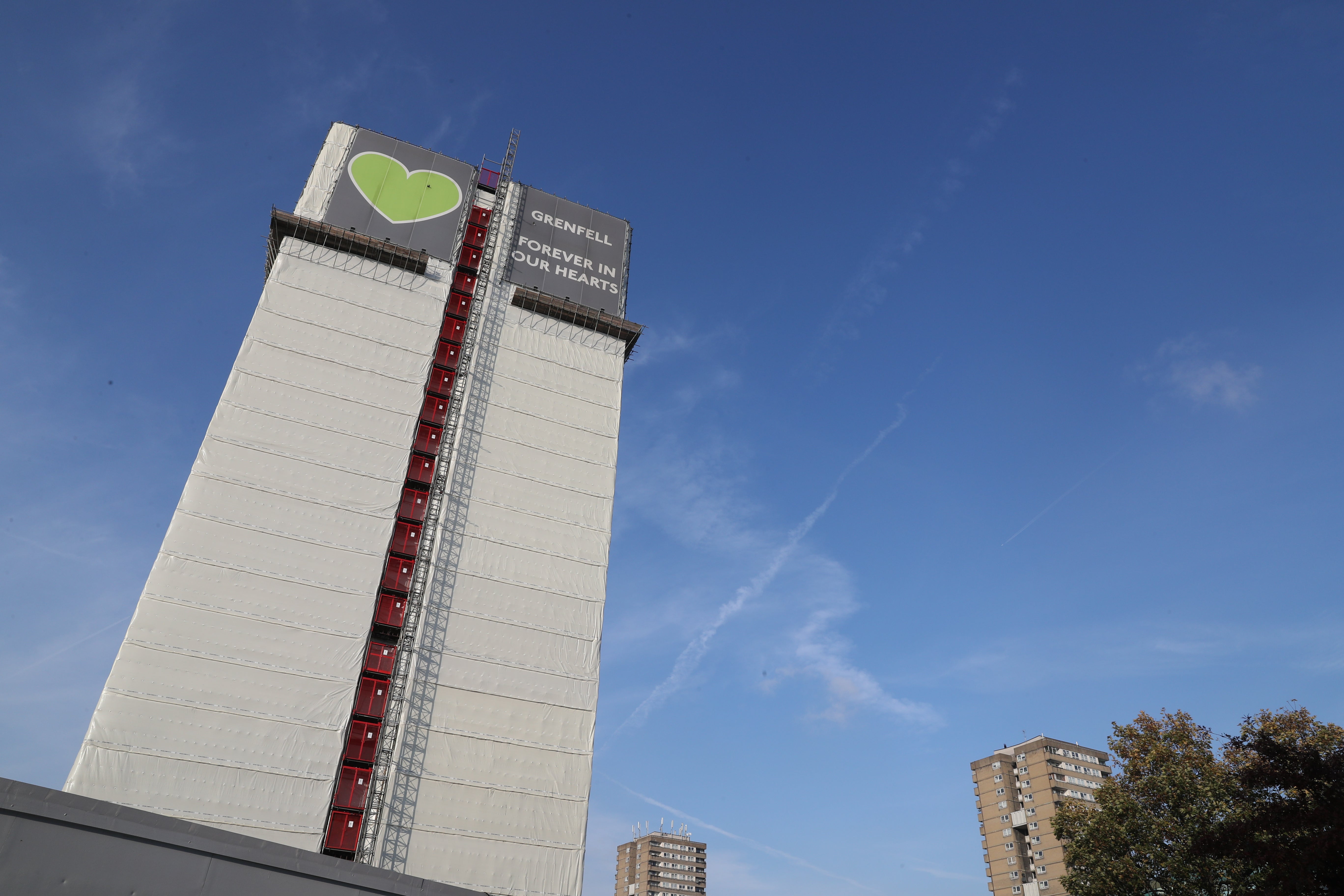Michael Gove meets developers over funding for cladding work
The Communities Secretary is meeting industry leaders to discuss how to pay for works to rectifying cladding and building safety issues.

Your support helps us to tell the story
From reproductive rights to climate change to Big Tech, The Independent is on the ground when the story is developing. Whether it's investigating the financials of Elon Musk's pro-Trump PAC or producing our latest documentary, 'The A Word', which shines a light on the American women fighting for reproductive rights, we know how important it is to parse out the facts from the messaging.
At such a critical moment in US history, we need reporters on the ground. Your donation allows us to keep sending journalists to speak to both sides of the story.
The Independent is trusted by Americans across the entire political spectrum. And unlike many other quality news outlets, we choose not to lock Americans out of our reporting and analysis with paywalls. We believe quality journalism should be available to everyone, paid for by those who can afford it.
Your support makes all the difference.Communities Secretary Michael Gove is meeting with developers on Thursday to discuss how to pay for works to rectify cladding and building safety issues, the Home Builders Federation (HBF) said.
Mr Gove is expected to discuss how developers can work with the Government to help fix safety issues, including dangerous cladding on buildings, the PA news agency understands.
It comes after ministers pledged to amend legislation to better protect thousands of leaseholders from being hit with hefty bills for safety work.
We firmly believe that any further solutions must be proportionate, take into account the significant commitments made by industry so far, and involve other companies, sectors and organisations who are outside the scope of the Residential Property Developers Tax
Speaking before the meeting, Stewart Baseley, executive chairman of the HBF, said the industry body would urge the Government to “provide clear leadership”.
He said: “Whilst absolutely agreeing that leaseholders should not have to pay, we firmly believe that any further solutions must be proportionate, take into account the significant commitments made by industry so far, and involve other companies, sectors and organisations who are outside the scope of the Residential Property Developers Tax.
“The largest builders, who only built a minority of the affected buildings, have already spent or committed approaching £1 billion to remediate affected buildings and the new Residential Developers Tax and Building Safety Levy will raise billions more.”
Mr Baseley said the HBF believes the Government is now “asking for further contributions” from developers to help rectify buildings constructed by other companies.
“We do not believe it should fall to responsible house-builders to fund the remediation of buildings built by foreign companies, developers no longer trading, or other parties,” he said.
Mr Baseley said the HBF will ask the Government for talks to be broadened to include other bodies, including freeholders and the firms which designed, tested and sold materials that developers bought in good faith.
He added: “We will also be urging (the) Government (to) provide clear leadership, to define guidance, and work with lenders, insurers, surveyors and the construction industry to understand what remediation work must be undertaken to resolve issues for residents quickly and simply.”
Meanwhile, Giles Grover from the End Our Cladding Scandal campaign said it welcomed Mr Gove’s attempts to pressure developers to “properly engage and provide real help to innocent leaseholders”.
“However, as always we need to see this actually lead to firm action on the ground to make buildings safe quickly,” he added in a statement.
“We remain concerned that the development community will only do the right thing if they are forced to do so.”
The Building Safety Bill, which is due to undergo further scrutiny in the Lords before potentially becoming law, would give a new regulator the power to prosecute rule-breaking developers and take their properties off the market.
It forms part of the Government’s plans to avert a repeat of the Grenfell Tower blaze in London which killed 72 people in 2017.
A developers’ tax could also be introduced to hit those responsible for dangerous cladding if firms do not voluntarily fix safety defects.